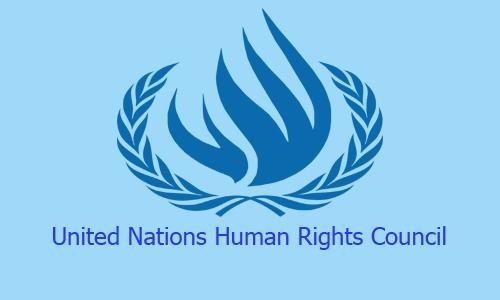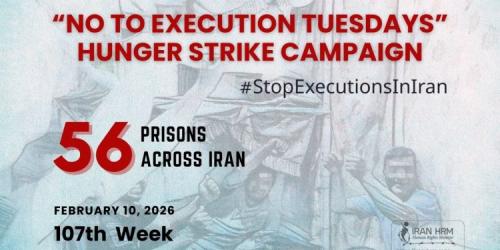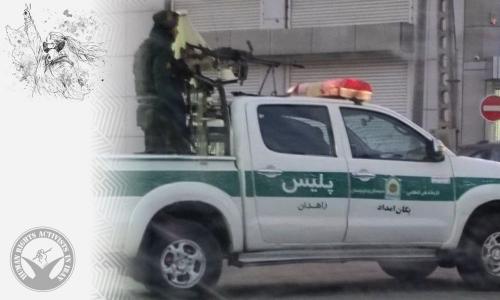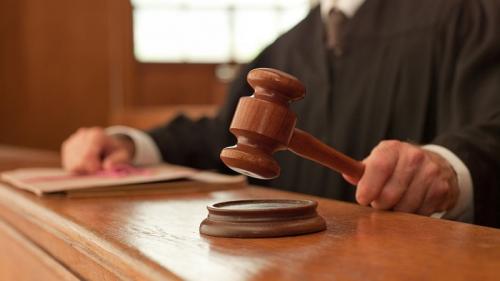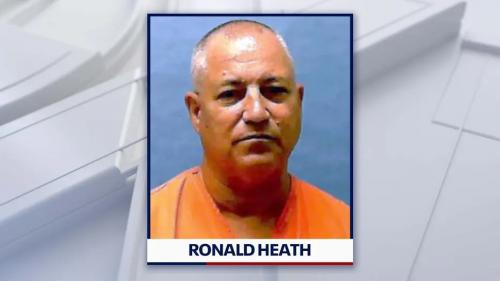08 July 2025 :
July 4, 2025 - IRAN. UN Experts Warn Iran Against Renewed Wave of Repression After Ceasefire
Executions, mass arrests, and rising anti-minority rhetoric spark alarm among international human rights observers.
A coalition of United Nations human rights experts in Genev has issued a grave warning to the Iranian regime, condemning a surge in state repression following the June 13 ceasefire that ended weeks of violent conflict between Iran and Israel. The experts expressed serious concern that Iranian authorities are exploiting the post-conflict moment to suppress dissent, crack down on civil society, and escalate human rights abuses.
In a joint statement, the independent experts described the situation in Iran as “alarming,” citing credible reports of mass arrests, summary executions, enforced disappearances, and discriminatory incitement in state media. “Post-conflict situations must not be used as an opportunity to suppress dissent and increase repression,” the experts stated.
While acknowledging the damage and civilian suffering caused by “unlawful military attacks by Israel and the United States,” the UN experts underscored that these hostilities cannot justify widespread internal repression by the Iranian regime. The crackdown appears to target a broad cross-section of society, including ethnic and religious minorities, journalists, human rights defenders, and foreign nationals.
Escalating Executions and Disappearances
Since the outbreak of hostilities on 13 June, at least 6 individuals have reportedly been executed on charges of espionage, including three Kurdish men. Among those currently detained are prominent human rights advocate Hossein Ronaghi and his brother, along with numerous Afghan nationals, Baha’is, Kurds, Balouchis, and Ahwazi Arabs. Many have been accused—often without public evidence—of “collaboration” with foreign enemies.
Swedish-Iranian academic Ahmadreza Djalali, imprisoned in Iran since 2016, is reportedly facing imminent execution. His current whereabouts remain unknown, prompting concerns of another enforced disappearance.
The experts also highlighted the sharp rise in deportations of Afghan refugees, noting that over 256,000 Afghans were forcibly returned from Iran in June alone. These expulsions raise serious concerns of refoulement, the illegal return of individuals to countries where they risk persecution or torture.
Fast-Track Trials and Expanded Death Penalty
Adding to the alarm, Iranian regime officials have publicly announced the launch of expedited trials for espionage suspects. Experts say this move drastically increases the risk of summary executions and violates international fair trial standards.
Even more troubling is a new bill under consideration by Iran regime’s parliament that would classify intelligence activities for “hostile governments” as “corruption on earth”—a charge punishable by death. The UN experts warned that the legislation’s broad and vague wording could criminalize legitimate expressions of opinion or information-sharing.
“Criminalising the sharing of information in broad language violates the rights to freedom of expression and information,” the experts said. “This legislation also represents a worrying expansion of the death penalty that violates international human rights law.”
State Media Incitement and Dehumanization
The experts expressed particular concern about the incitement to violence and discrimination in Iran’s state-linked Persian and Arabic media outlets. Minority communities, especially Baha’is, have been labelled as “traitors” and “filthy rats,” with some media even calling for their surveillance and killing. The experts noted disturbing parallels with the rhetoric and violence that preceded the mass executions of 1988.
Such language not only deepens societal divisions but also paves the way for systematic persecution, they warned.
Abysmal Prison Conditions and Disappeared Detainees
The aftermath of Israeli strikes on Iranian prison infrastructure has also led to a deterioration in detention conditions. Inmates formerly held at Evin Prison, including political prisoners, have been transferred to the Great Tehran Penitentiary and Qarchak Prison, where conditions are reportedly dire. Many detainees have not been accounted for, raising the specter of enforced disappearances—a gross violation of international law.
“Following the ceasefire, the world is watching closely to see how Iranian authorities treat their own people,” the experts said. “This will be a defining measure of the country’s commitment to human rights and the rule of law.”
Call for International Action and Civil Society Support
In their statement, the experts called on the international community to step up its support for Iranian civil society, including by providing financial and technical assistance to independent human rights organizations and media outlets.
“The survival of civic space depends on the ability to document human rights violations, preserve collective memory, and coordinate action, which is essential during this critical period,” they said.
The UN experts emphasized that they have been in contact with Iranian authorities regarding these concerns. However, they warned that the current trajectory mirrors past cycles of repression in Iran and risks repeating some of the darkest chapters in the country’s modern history.
“Iran must not allow history to repeat itself by resorting to the same dark patterns of repression that have devastated its people in previous post-conflict periods,” the statement concluded.
Signatories to the Statement Include:
Mai Sato, Special Rapporteur on the situation of human rights in Iran
Nazila Ghanea, Special Rapporteur on freedom of religion or belief
Morris Tidball-Binz, Special Rapporteur on extrajudicial executions
Nicolas Levrat, Special Rapporteur on minority issues
Richard Bennett, Special Rapporteur on the situation of human rights in Afghanistan
Irene Khan, Special Rapporteur on freedom of opinion and expression
Mary Lawlor, Special Rapporteur on the situation of human rights defenders
Gabriella Citroni and members of the Working Group on Enforced or Involuntary Disappearances
Margaret Satterthwaite, Special Rapporteur on the independence of judges and lawyers
Members of the Working Group on discrimination against women and girls


